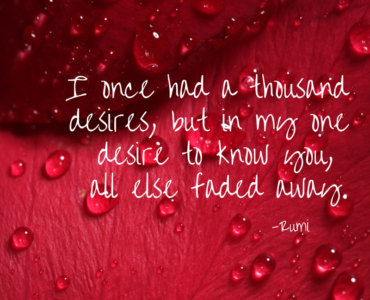 Pssst. I’m going to urge you to steal the ideas in this blog. Because I did.
Pssst. I’m going to urge you to steal the ideas in this blog. Because I did.
But before the blog police come busting in my door and drag me in front of the court of ideas where I’ll have my misused words thrown in my face and—
Wait, this is starting to sound like a dystopian novel when it’s supposed to be a blog.
Here’s the truth:
I’ve been an idea thief all my life. In junior high I kept a notebook of sappy poetry and angry song lyrics. In my memoir I use various quotes to jump start each chapter. And I often, in my weekly blog, write about the message I heard in Sunday service.
I’m not the only thief. Last night my daughter and I watched The Diary of Bridget Jones, which is based on my favorite-story-of-all-time, Pride and Prejudice, a fact that I excitedly pointed out so often that she finally told me to shut up.
Then there’s Jane Smiley’s A Thousand Acres, a re-telling of Shakespeare’s King Lear.
And when I Google books based on the Bible, the results include Harry Potter, The Stand, A Wrinkle in Time, and The Golden Compass, so guess what? J.K. Rowling and Stephen King are thieves too.
Jon Morrow, a prolific writer and CEO of Smart Blogger, says, “One of the worst ways you can torture yourself as a writer is to believe everything you do has to be original.”
Right now I’m taking a 3-week writing boot camp. Every day, the instructor sends us inspirational quotes–yes, words written by others–along with writing prompts.
I’m loving the experience, happily stashing away these precious words for further use and shamelessly filling my mental coffers with treasures that will make my next book shine. And as I begin a new novel, I’m looking at news stories and building my characters around people who actually lived. Basically, I’m grabbing whatever material I can get my hands on.
So, as you can see, this is no gang-like initiation where I urge you to behave recklessly while I sit back and watch. In fact, I’m going to go a step further and share with you, fellow writer, some material I found on the web, just to show you how it’s done.
It’s written by Matt Rose about one of my favorite subjects, the Law of Attraction. But here’s the weird thing. Matt’s 8 Steps To Attracting Wealth could just as easily be called 8 Steps to Reaching Your Writing Goals. These are practically identical to what is being presented in my writers’ boot camp.
By the way, Matt attributes his words of wisdom to inspirational speaker Bob Proctor. (Will the madness never end?)
- Write down your long-term goal.
- Use affirmations.
- Never stop being grateful.
- Affirm the positive feelings and reject the negative.
- Engage in positive actions.
- Work up a good sweat.
- Rejoice in the success of others.
- Don’t forget to keep learning.
I would add one thing to this list: trust that something good, true, and unique is expressing through you.
If you don’t, you might end up like my neighbor, Mary, who is a painter in her sixties. She told me she is finally making progress on a book she’s long wanted to write based on Mark Twain.
“I just found out that you don’t have to get permission to use quotes,” she said. “All these years I thought I had to write to someone for permission, and that was just too overwhelming.” Not only that, she didn’t believe she could have anything to say that Mark Twain hasn’t said better himself.
Don’t do that. Don’t be a Mary.
Remember that you may not need permission to use others’ ideas, but you do need attribution. Because, of course, real plagiarism is no joke. Plagiarism.org defines it as an act of fraud that involves both stealing someone else’s work and lying about it afterward. That sounds sinister and criminal and of course is NOT cool.
Just give credit where credit is due. Simple.
And don’t let fear of the idea police stop you from writing. Allow yourself to steep in the rich soup of every word that’s ever been written. Become a collaborator with every writer you’ve ever admired. (A better title for this blog would probably be Why Collaboration Makes You a Better Writer.)
Because when you write something, no matter how many times the idea has been conveyed, it is unique because YOU are unique. No one will a write something exactly as you do. And we need every last version, every individual nuance, every voice.
Yes, you can quote me on that.
[bctt tweet=”When you write something, no matter how many times the idea has been conveyed, it is unique because YOU are unique.” username=””]








